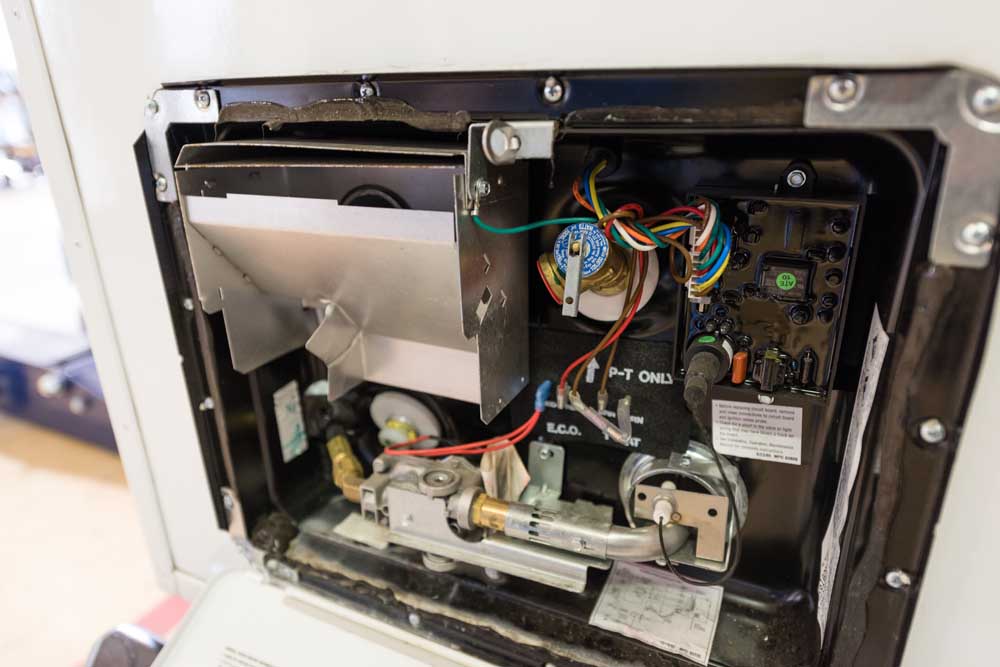The RV To-Do List
Published 12:00 am Saturday, March 14, 2015

- The RV To-Do List
The early arrival of warm weather here in Central Oregon may have many of you itching to get your RV ready to do some traveling. Lucky for you, Spring Break is coming up and it is a great time to get working on it.
Proper de-winterization ensures safety while traveling and can also prolong the life of your RV, according to experts from All Seasons RV and Marine and Big Country RV in Bend.
“If things are missed or not done correctly, it can cause harm to your RV,” said Mark Haywood, the customer care manager at Big Country RV. “That is why it is important to do it the right way and to also make sure it is winterized correctly to begin with.”
These local RV specialists were kind enough to help compile the ultimate de-winterizing to-do list, so you can tackle this project with ease and efficiency. So, lets get to it.
Ventilate
Mike Alvarez, the general manager at All Seasons RV, suggests opening all of the windows to let in fresh air, while working on the rest of the list. No one wants to sleep in a smelly RV.
Check Batteries
You can check your batteries by using the monitor panel or a voltmeter, while the RV is not hooked up to an electric outlet, to ensure the batteries are in working order.
“Checking the batteries is the first thing to do,” said Rick Wise, general sales manager at All Seasons RV. “Batteries allow the RV to operate properly, but they are also essential to the next, and one of the most crucial, items on the to do list.”
Flush the Water System
First, hook your clean water hose up to a garden or city water tap, then connect to the water tank itself. Next, open your gray tank and turn on all of the faucets, allowing them to run until the water is clear. Repeat this step with your holding tank. Next add one cup of bleach or an additive of choice (there are a variety for sale at many RV dealerships), and flush that through the system until the smell is gone and the water is again clear.
“This is very important and should be done once a year,” said Alvarez. “This rids the water system of any residual antifreeze or algae that may have built up over the winter, ensuring you have safe water to use all summer.”
Check Brakes and Tires
“Take your RV for a short drive around the block to ensure your brakes are working properly,” suggested Wise.
Checking tire pressure and tread is also a good idea. If any need to be replaced, now is a good time to do it.
Propane System
Be cautious when checking your RV propane system, as propane is highly flammable. If you want to check it yourself, first check the exterior vents, propane cylinders and connections to propane appliances for any debris, damage or corrosion. Remove debris, which may inhibit proper ventilation, and replace parts that are damaged.
“If all of that looks good then make sure your tank is full of fuel,” said Wise. “Most importantly, make sure all valves are turned off until you have reached your destination and are no longer on the move.”
Seals
Check your roof, windows and interior to ensure there are no broken seals or holes anywhere. Seal them and replace any missing caulking.
“Sometimes little critters can get in and wreak some havoc during the winter,” said Alvarez. “You want to make sure you don’t have any leaks or cracks anywhere. Do this at least once a year.”
Appliances
Turn on all of your appliances before hitting the road to ensure everything is in working order.
“I would suggest turning them all on and allowing them to run for about half a day,” said Wise. “This way you will find out if something needs to be replaced or repaired well before you decide to take a trip.”
Safety Checks
Make sure your carbon monoxide, gas leak and smoke detectors have working batteries and are good to go. Also make sure you have a working fire extinguisher somewhere inside at all times.
Clean
Dust can build up while your RV is in storage, so give it some love and clean it up a bit inside and out to make your trip more enjoyable.
Stock Up
Many items you take along will be packed just before a specific trip, but there are some things you can stock beforehand for peace of mind. Extra drinking water is, of course, a good idea when hitting the road. A first aid kit and maybe some un-perishable food items are also great to have on hand.
“I would suggest always taking along a water regulator in case your campsite has high water pressure,” said Alvarez. “An extra water hose and leveling blocks are also items that are convenient to have on hand. At All Seasons, we actually sell starter kits, which include many of these essentials, to ensure you always have necessities with you.”
All of this may sound a bit overwhelming, especially if it’s your first RV.
“There isn’t a problem with doing many of these things yourself,” said Haywood. “There is also no problem with asking an expert for guidance, or taking the RV to a local dealership to have things done professionally.”
Wise agreed that some of these things can be done on your own, but you don’t have to go it alone.
“If you aren’t comfortable with something or want further instruction on how to do it properly, most local RV dealerships, including All Seasons, would be happy to offer assistance,” said Wise.
Once you have checked off the items on this list, your RV should be ready for some spring and summer adventuring.
So get out there, have a great time and be safe.






